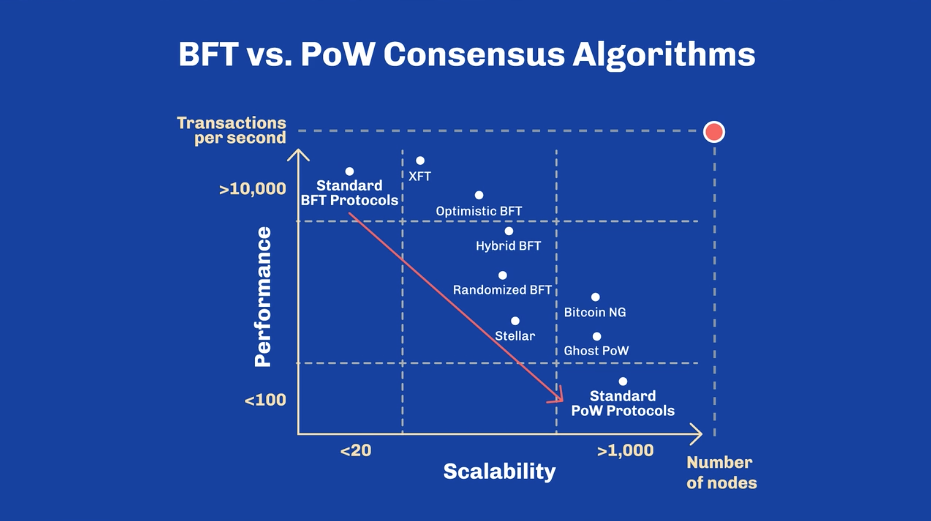Byzantine Fault Tolerance (BFT) on Cardano refers to the blockchain’s ability to function correctly even when some nodes in the network behave maliciously or incorrectly, either due to bugs, network failures, or deliberate attacks. In a distributed system like Cardano, where multiple nodes work together to maintain consensus, BFT ensures that the network can tolerate such misbehavior while continuing to operate securely.
Key Concepts of Byzantine Fault Tolerance (BFT) on Cardano
- Byzantine Faults:
- A Byzantine fault occurs when a node behaves maliciously, sending conflicting or invalid information to different parts of the network. These faults are named after the Byzantine Generals Problem, where participants must agree on a strategy despite some of them being dishonest or unreliable.
- On Cardano, a Byzantine fault could involve a node trying to create conflicting transactions, submit invalid blocks, or attempt to disrupt the consensus process.
- Ouroboros and BFT:
- Cardano achieves Byzantine Fault Tolerance through its Ouroboros Proof-of-Stake (PoS) consensus algorithm, which is mathematically proven to be secure against Byzantine adversaries. Ouroboros ensures that as long as a majority of stake (51% or more) is held by honest participants, the network will continue to reach consensus and prevent malicious actors from taking control.
- Ouroboros operates in epochs (time periods), with validators selected randomly to produce blocks for each slot. Even if some validators act maliciously, the consensus algorithm can detect and ignore their incorrect behavior, allowing the network to function properly.
- Epoch Transitions and BFT:
- During epoch transitions, Cardano incorporates an update to the consensus rules with its Ouroboros Byzantine Fault Tolerance (OBFT) upgrade. This variant of Ouroboros is designed to handle situations where nodes might act dishonestly or maliciously during the transition between epochs. OBFT ensures that the network reaches a consensus on the next epoch’s leader selection, even if some nodes try to disrupt the process.
- Threshold for Byzantine Faults:
- For BFT to work, there is a threshold of how many Byzantine (malicious or faulty) nodes the system can tolerate. In Ouroboros, Cardano can tolerate up to 1/3 of the total stake being controlled by malicious actors without affecting the integrity of the network. This is because the remaining honest participants still control the majority of the stake, ensuring the continuation of valid blocks and preventing double-spending or other attacks.
- Defense Against 51% Attacks:
- Cardano’s BFT mechanisms protect against 51% attacks, where an attacker controls a majority of the network’s stake to manipulate transactions. Because of the strong cryptographic guarantees and decentralized structure of Cardano’s staking, achieving such an attack would be prohibitively expensive and difficult to execute. This ensures the security of the network against both malicious nodes and coordinated attacks.
- BFT in Ouroboros Genesis:
- In Cardano’s Ouroboros Genesis protocol, Byzantine Fault Tolerance is further enhanced by introducing features that allow the network to bootstrap from any point in the blockchain’s history. This means that new participants joining the network can securely synchronize with the correct state of the blockchain, even if some nodes are Byzantine or malicious.
- This ensures the long-term sustainability and security of the network, as new nodes can always catch up with the true state of the chain, regardless of potential malicious behavior in the system.
Why BFT is Important for Cardano

- Security Against Malicious Actors: BFT ensures that the Cardano network can resist attacks and maintain consensus even when some nodes try to act dishonestly or disrupt the system.
- Network Stability: By tolerating a certain level of faulty or malicious behavior, Cardano can maintain stability and keep functioning without requiring a perfect network of honest participants.
- Decentralization: BFT supports the decentralized nature of Cardano, where participants all over the world run nodes, and the system can still be trusted to operate correctly even in the presence of some bad actors.
In summary, Byzantine Fault Tolerance (BFT) on Cardano ensures that the network can remain secure and operational even if some nodes behave maliciously or unpredictably. This tolerance is a critical feature for maintaining Cardano’s decentralized, global, and secure ecosystem, allowing it to withstand various threats and attacks while achieving consensus efficiently.

Leave a Reply